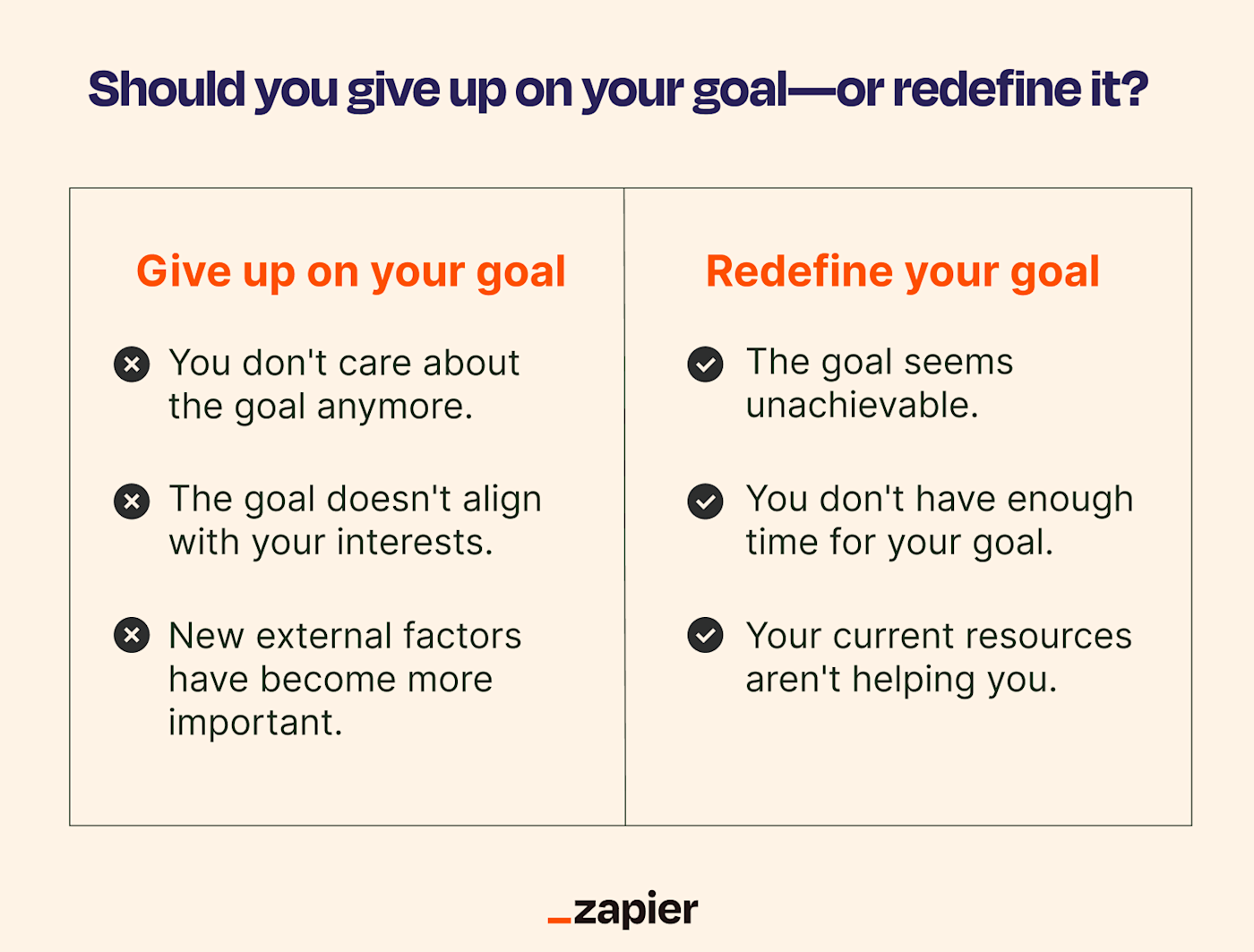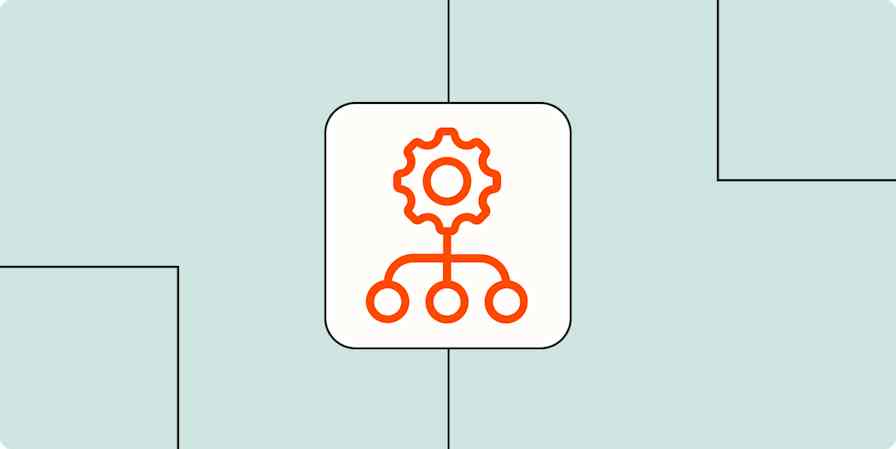I'm competitive, even with myself. In the past, when I'd set a goal for myself—whether it was to build a new habit, develop some sort of long-term growth, or accomplish something big at work—I was really hard on myself if I didn't accomplish it.
But I started to realize that those unmet goals were having a nasty effect on my mental health (not to mention my productivity). So I decided to try something new: rather than beating myself up for not sticking to a goal, I now take the opportunity to reassess what's actually best for me.
What I've learned? Quitting isn't always bad—in some cases, it can be the best decision. Here are some tips, based on my experiences, for how to give up on a goal the right way.
Setting the first draft of your goals? Set annual goals with this simple goal-setting worksheet.
First, assess the situation
The first step is to check in on your reasons for giving up the goal. Because yes, sometimes quitting is the right thing, but other times, redefining your goal is the better option.
Start by asking yourself a couple questions:
Why do you want to give up on this goal? Is it because you lack resources? Have you had a change of interest? Or does your goal feel unachievable?
What's the purpose of the goal? Revisit the reasons you set this goal in the first place. Explore your motivation: is it still something that's important to you?
Based on your answers, you'll be able to decide if you should redefine a goal or quit entirely.

If you've decided you want to let go of your goal completely (good for you!), take a moment to reflect, learn, and move forward. If you've decided to revise a goal, it's time to evaluate how you want to redefine it. Doing so will help you avoid running into the same goal-setting issues again.
How to redefine a goal
I'm constantly re-setting my goals. Life changes, and my goals need to change with it. Here's how I go about it:
I evaluate my progress. What milestones have I already hit? How did I achieve them? Based on the progress I've made on the goal, I can set new milestones or choose to change the endpoint of a goal.
I consider the time it takes. Each goal is going to require a different amount of effort and time. Now that I've tried this goal, how much time can I dedicate to it?
I look at the resources available. Some goals may require purchasing a class or some tangible items. If I lack resources, it just means I need to add budgeting into the milestones of my goal or look at other (more financially accessible) ways I may be able to achieve that goal.
Redefining in action: An example
Here's an example. Let's say I wanted to read 52 books in 2023 (P.S. I love reading).
First, I assess my situation.
Why do I want to give up on this goal? I feel pressure to read constantly to achieve this goal, and it's taking the joy out of reading.
What's the purpose of this goal? Setting goals helps me carve out time for the things I love or ways I want to grow. So, I still want to set a reading goal, just one that feels less overwhelming.
Since I've decided I still want to have a reading goal, it's now time to redefine my goal.
I evaluate my progress: I've been able to read 18 books by July.
I consider the time: I know that I won't be able to carve out enough time to reach my goal of 52 books. However, I have one night a week where instead of watching an hour of TV, I can read instead.
I redefine the goal: Since I can carve out about an hour more each week for reading, it feels achievable to read 40 books (instead of 52) by the end of the year. It's still a goal that requires me to put a little effort into it, but something that feels much more achievable (and, therefore, more fun).
Learn more: How to build habits that will last all year
Reflect, learn, and move forward
My example of not reading 52 books in a year might feel a little low-stakes. But we all have goals that are much more life-crucial or life-changing. That's why it's important to reflect and move forward—because your goals are more important than just the goal.
I'm going to sound like my mom, but here goes: setting goals is about the process, effort, and journey. It's true! The most impactful part of goal-setting isn't achieving the goal but what you learn about yourself along the way. And you'll grow by knowing how to move past failure, respond to setbacks, and make better life decisions for yourself.
Give up so you can achieve more
So, on that note, I wish you luck with failing at your goals. Because, as much as it pains me to admit as an avid planner, I've had the most personal growth when things don't go according to plan.
Related reading:









